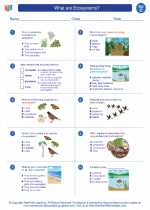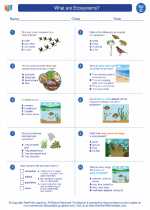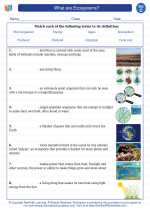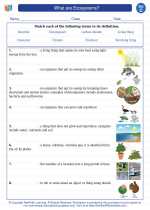Decomposers: Nature's Recyclers
Decomposers are an important part of the ecosystem, playing a crucial role in breaking down organic matter and returning essential nutrients to the soil. They are nature's recyclers, responsible for the decomposition of dead plants, animals, and other organic material.
Types of Decomposers
There are various types of decomposers, including:
Decomposition Process
When a plant or animal dies, decomposers begin the process of breaking down the organic matter. Bacteria and fungi secrete enzymes that help to break down complex organic compounds into simpler substances. This process releases nutrients such as nitrogen, phosphorus, and potassium back into the soil, where they can be taken up by plants to support new growth.
Role in the Ecosystem
Decomposers play a vital role in maintaining the balance of nutrients in the ecosystem. Without decomposers, dead organic matter would accumulate and nutrients would be locked up, unavailable for reuse by living organisms.
Study Guide
Here are some key points to remember about decomposers:
- What are decomposers and what is their role in the ecosystem?
- Identify different types of decomposers and their characteristics.
- Explain the process of decomposition and how it contributes to nutrient recycling.
- Discuss the importance of decomposers in maintaining a healthy ecosystem.
Understanding the role of decomposers is essential for appreciating the interconnectedness of living organisms in the natural world.
.◂Science Worksheets and Study Guides Third Grade. What are Ecosystems?

 Worksheet/Answer key
Worksheet/Answer key
 Vocabulary/Answer key
Vocabulary/Answer key
 Vocabulary/Answer key
Vocabulary/Answer key
 Vocabulary/Answer key
Vocabulary/Answer key
 Vocabulary/Answer key
Vocabulary/Answer key
